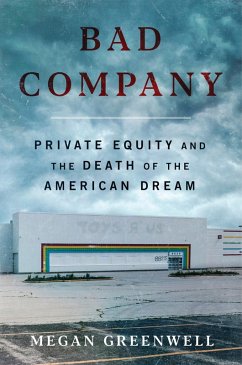Private equity runs our country, yet few Americans have any idea how ingrained it is in their lives. Private equity controls hospitals, daycare centers, supermarket chains, voting machine manufacturers, local newspapers, nursing home operators, fertility clinics, and prison service providers. The industry manages highways, municipal water systems, fire departments, emergency medical services, and owns a growing swath of commercial and residential real estate.
Private equity executives, meanwhile, are not only among the wealthiest people in American society, but also modern-day barons with outsized influence on our politics and legislation. Yet their firms have to disclose almost nothing about how they operate, leaving workers and communities on the hook when a company begins to flounder without warning. Twenty percent of companies acquired through private equity buyouts go bankrupt within ten years, accounting for forty percent of all U.S. bankruptcies and putting millions of workers' jobs at risk. How did private equity firms become so good at making money for themselves and so damaging for the rest of society?
Acclaimed journalist Megan Greenwell's Bad Company tells the hidden story of private equity through the experiences of four American workers who watched as private equity upended their employers and communities: a Toys R Us floor supervisor, a rural doctor, a local newspaper journalist, and an affordable housing organizer.
In the tradition of deeply human reportage like Matthew Desmond's Evicted, Megan Greenwell pulls back the curtain on shadowy multibillion dollar companies like Apollo Global Management, Bain Capital, and KKR, telling a larger story about how private equity is reshaping the economy, disrupting communities, and hollowing out the very idea of the American dream itself. Timely and masterfully told, Bad Company is a forceful rebuke of America's most consequential, yet least understood economic forces.
Dieser Download kann aus rechtlichen Gründen nur mit Rechnungsadresse in A, B, BG, CY, CZ, D, DK, EW, E, FIN, F, GR, HR, H, I, LT, L, LR, M, NL, PL, P, R, S, SLO, SK ausgeliefert werden.









